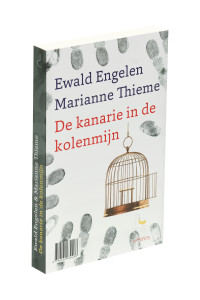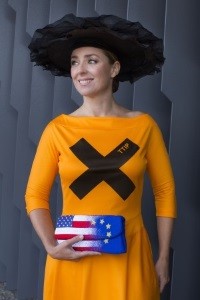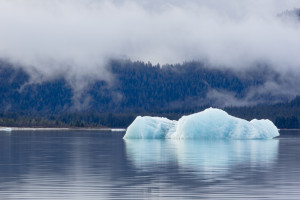Worldlog 18 april 2016
U nedjelju, 10. travnja, održao se već 22. kongres naše stranke. Više od 400 članova stranke bili su prisutni tog nadahnjujućeg dana. Svaki kongers ja uvijek pomislim kako je posebno vidjeti da toliko različitih ljudi dijele ideale naše stranke. Osim uobičajenih elemenata kao što je godišnji izvještaj i godišnji obračun, profesor financijske geografije, Ewald Engelen, održao je predavanje o svojim pogledima na bankovnu krizu. Usporedio je temeljito trul financijski sustav sa načinom na koji se pruža hrana, način sada poznat po mnogim skandalima kao što je prijevara sa konjskim mesom. On je također pričao kako je on kao okorjeli mesojeda na kraju postao vegetarijanac. Ja sam zajedno sa Ewaldom napisala novu knjigu “Kanarinac u rudniku ugljena“.

Naši pogledi na ekonomiju i ekologiju se sastaju u knjizi “Kanarinac u rudniku ugljena”. Ta naša knjiga će se ovog tjedna pojaviti u Nizozemskoj. Posebno za međunarodne, zainteresirane osobe, knjiga će se također objaviti na engleskom jeziku u obliku e-knjige. Ta verzija se očekuje početkom svibnja, znači o tome ću vam kasnije opet javiti!
U mom posljednjem Worldlogu sam pričala o referendumu koji je 6. travnja održan u Nizozemskoj, i koji omogućuje Nizozemcima da se izjasne za ili protiv sporazuma o slobodnoj trgovini između EU i Ukrajine. Ja sam s mojom strankom snažno vodila kampanju protiv tog sporazuma i drago mi je da je većina ljudi na kraju glasala protiv sporazuma. Mislim da naša vlada, koja je za taj sporazum, naravno nesmije da ignoriše rezultat referenda. Prošli tjedan je bila rasprava u saboru, gdje sam ja ponovo izrazila da jedno ‘protiv’ sa strane Nizozemaca treba shvatiti doslovno, što znači da sporazum stoga ne bi trebalo ratificirati.
Prije toga sam također pozvala našu vladu da organizira referendum o TTIPu. Moj zahtjev za to je tada bio odbijen. Ishod referenduma o sporazumu o slobodnoj trgovini s Ukrajinom pokazuje da je većina birača kritična kada su u pitanju sporazumi o slobodnoj trgovini. Ja sam, dakle, ponovno podnijela zahtjev za referendum o poželjnosti TTIPa. Sabor će o tome glasati u tjednu od 25. travnja.

“Za što služi novac, kada se ledena kapa istopi?” To je bio naslov mog govora prošlog tjedna u raspravi o Arktiku. Želimo da se vlada potpuno preda zaštiti Sjevernog pola. Kada je u pitanju Južni pol, nizozemska vlada se bori za optimalnu zaštitu, ali kada je u pitanju Sjeverni pol čini se da ekonomski dobitak stoji iznad osjetljive prirode i okoliša.
Jer čini se da se vlada usredotočuje na razvoj ekonomiskih prilika na Arktiku, iako je sabor u 2014. godini usvojio moj prijedlog da se Arktik zaštiti od eksploataciji nafte i plina. Vlada čak želi aktivno zastupati interese nizozemskih tvrtka koje mogu zaraditi pare na eksploataciji nafte i plina, eksploatacija koja se može vršiti sada kada je toplije na Sjevernom polu.

Vlada želi da zaštiti, sve što je lijepo, netaknute i značajno, osim ako ima novca u zemlji. Vlada bi trebala staviti prioritet na zaštitu Arktika i cijele planet od daljnjeg zatopljenja i zagađenja. Nema drugog interesa koji bi mogao prevagnuti.
To je to za sada, vidimo se idući put.
Pozdrav,
Marianne
On Sunday the 10th of April, we celebrated our Party´s already 22th congress. More than 400 members were present on this inspiring day. Every congress it is remarkable to see people of so many different backgrounds sharing our party’s ideals. In addition to the customary items such as an annual report and annual financial accounts, Professor of Financial Geography Ewald Engelen gave a guest lecture on his views of the banking crisis. He compared the thoroughly rotten financial system to the way our food supply, with its many food scandals including the horse meat fraud, is organised. He also talked about how he had shifted from being a confirmed meat-eater to being a vegetarian. Together, Ewald and I have written our new book De Kanarie in de Kolenmijn (The Canary in the Coal-mine).

In De Kanarie in de Kolenmijn, our visions on economics and ecology meet. As of this week, our book will be sold in the Netherlands. An English version in the form of an e-book will also be published specially for our international readers. This e-book is expected to come out in the beginning of May, so I will keep you informed!
In my last Worldlogs, I have written about the referendum that was held in the Netherlands on 6 April. With this referendum, the Dutch people were able to indicate whether they were in favour of or against the trade agreement between the EU and Ukraine. Together with our party members, I have campaigned strongly against this agreement and I am therefore glad that a majority of the Dutch citizens has also voted against. I think that our government, which is in favour of the treaty, may definitely not ignore the result of this vote. Last week, during a debate in the Lower House, I have indicated once again that a no vote by the Dutch people should literally mean no, and the treaty should therefore not be ratified.
Earlier I have urged our government to hold a referendum on TTIP, but my request was denied. The result of the referendum on the EU/Ukraine treaty shows us that a majority of our voters are critical of free trade agreements. That is why I have once again tabled a motion for a referendum on the desirability of TTIP. It will be put to the vote during the week of 25 April.

“What good will money do you when the icecaps are melting?” That was the title of my contribution to the debate on the Arctic Region last week. We want to see the government fully commit itself to the protection of the North Pole. The Dutch government is fighting for optimum protection of the South Pole, but when it comes to the North Pole, economic gain seems to be put above the fragile wildlife and environment.
After all, despite the fact that the Lower House carried my motion of 2014 on safeguarding the Arctic Region against oil and gas extraction, the government still seems to be focusing on developing economic opportunities in the Arctic. The government is even planning on taking an active role in looking after the interests of Dutch companies that will make money from oil and gas drilling, which has now become possible due to the warming of the North Pole.

The government is willing to protect all that is beautiful, unspoiled and meaningful, expect when there is money in the ground. The government should make the protection of the Arctic Region and the entire planet against further warming and pollution its priority. No other interest can be of more importance.
That’s it for now, until next week!
Kind regards,
Marianne